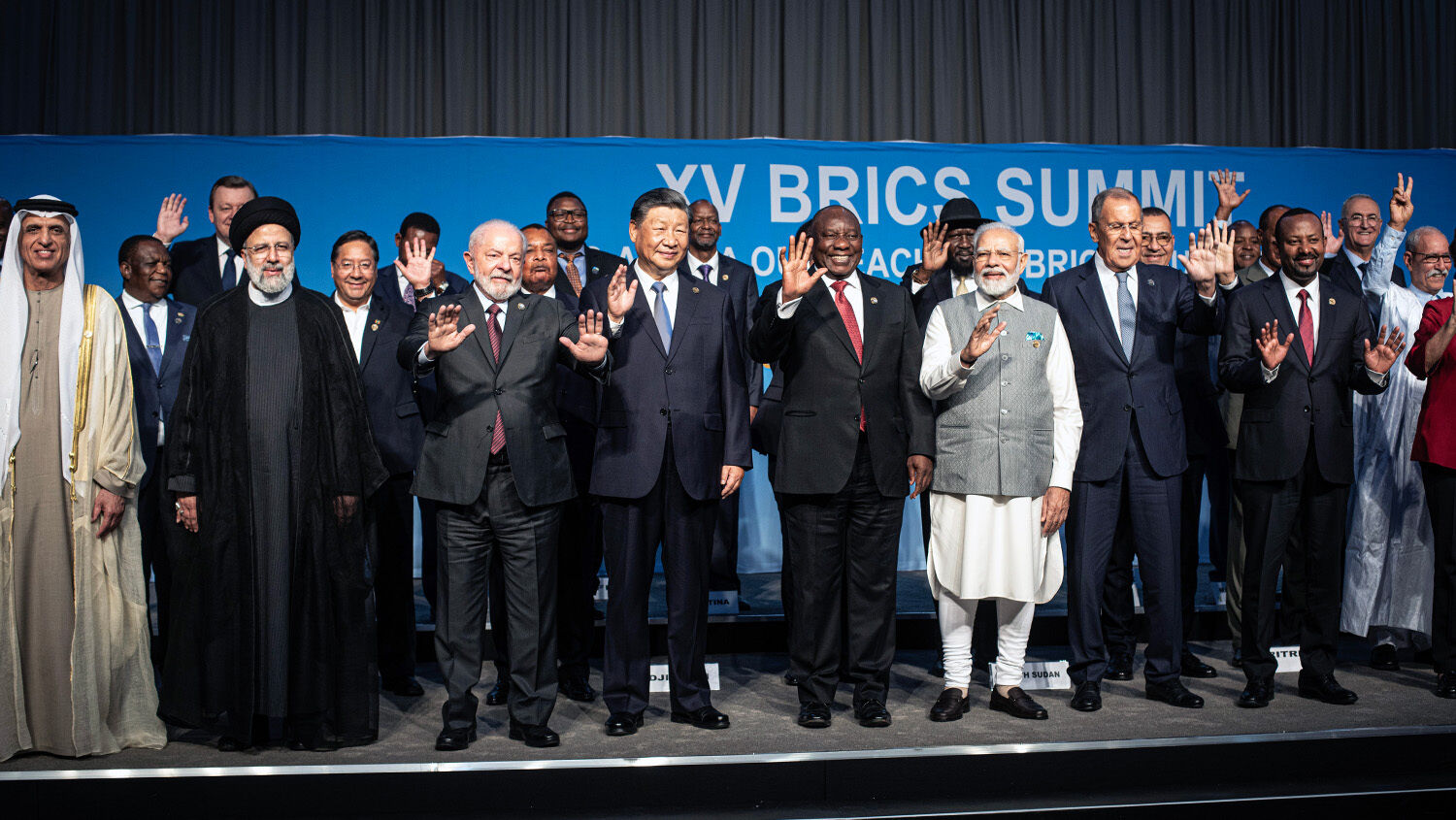
Will BRICS End the Rule of the Dollar?
As the United States’ economy struggles and Western sanctions cause economic hardship in revisionist countries, some are looking to break away from the U.S.-led global financial system. brics (Brazil, Russia, India, China and South Africa) recently invited six countries to join the bloc: Iran, Saudi Arabia, Egypt, the United Arab Emirates, Ethiopia and Argentina. The bloc now represents 42 percent of the world’s population and 36 percent of global gross domestic product.
Will brics provide the new financial system that U.S. rivals are desperately hoping for?
After the West sanctioned Russia over the invasion of Ukraine, brics nations discussed a new financial system that wouldn’t be at the mercy of dollar-based sanctions. Since then, global efforts to ditch the dollar have increased.
During his trip to China in April, Brazilian President Luiz Inácio Lula da Silva called on brics nations to work toward replacing the U.S. dollar with their own currency in international trade. Russia had already increased trade with China in yuan; that month, use of the Chinese yuan overtook the U.S. dollar in China’s cross-border transactions for the first time. India also began pushing for its international trade to be in Indian rupees rather than dollars.
Early in the year, Saudi Arabia, the world’s largest crude oil exporter, opened itself to oil trade in currencies other than the U.S. dollar. Now that Saudi Arabia will be part of brics—along with other large oil exporters Iran and the U.A.E.—the previously indestructible “petrodollar” could be under threat.
brics nations are also discussing methods to create a new currency altogether. During the 14th annual brics summit in 2022, Russian President Vladimir Putin said the brics nations plan to create a “new global reserve currency” and are open to trading it with all fair partners.
Russian lawmaker Alexander Babakov said, “The transition to settlements in national currencies is the first step. The next one is to provide the circulation of digital or any other form of a fundamentally new currency in the nearest future.”
Is it even possible for a new brics currency to compete with the U.S. dollar?
The vast size of the American economy, the power of U.S. markets and the momentum of decades-old global finance practices mean the dollar will be difficult to replace. According to the Bank of New York Mellon Corp., the dollar is unlikely to lose its status as the global reserve currency anytime soon. The dollar is used in over 74 percent of all international trade, almost 90 percent of currency exchange and nearly 100 percent of oil trade. Currencies such as the yuan are heavily manipulated and, therefore, cannot gain enough international confidence to challenge the dollar. And while the notion of a new brics currency may sound viable, the nations in the group have such vastly different political systems and geopolitical goals—including deep rivalries among themselves—that it would be very difficult to establish a trustworthy common currency.
Even if brics doesn’t succeed in overthrowing U.S. economic supremacy, its formation and expansion show the growing determination to weaken America. It might pave the way for more serious anti-U.S. alliances in the future.
The Trumpet has warned that Asian nations will break away from the world financial system dominated by America. To threaten U.S. financial dominance, they will need support from Europe.
In Isaiah 23, the Bible prophesies of a “mart of nations,” an economic alliance between Asian and European nations, led by Germany, that will shut the U.S. out of world trade. Trumpet editor in chief Gerald Flurry explains these prophecies in his booklet Isaiah’s End-Time Vision. While modern efforts by Asia and other brics nations may erode the dollar’s dominance, Europe will ultimately lead this “mart of nations” and create independence from the U.S.
In 2016, after Germany and several other European nations made the decision to join China’s Asian Infrastructure Investment Bank, Mr. Flurry called it a major step in building the “mart of nations.” He wrote:
Germany has already joined the China-led Asian Infrastructure Investment Bank. Financial analysts like Jim Willie are warning that Germany may already be planning to ditch the dollar and join the brics nations!
The relationship we see developing between the “king of the north” and the “kings of the east” is exactly what Isaiah prophesied over 2,700 years ago! …
The United States and Britain are going to be left out in the cold as two gigantic trade blocs, Europe and Asia, mesh together and begin calling the shots in world commerce. These nations of Israel are going to be literally besieged—economically frozen out of world trade!
This is a deeply sobering future to contemplate. But the Bible also proclaims a message of tremendous hope.
“[T]hat trading partnership won’t last long,” Mr. Flurry writes in his booklet. “Soon they will clash, just before Jesus Christ returns and destroys both of them.” Christ will soon return to Earth and put an end to man’s flawed economies, establishing a government that leads to peace and prosperity for all mankind. That is the ultimate solution to all of man’s problems!
To fully understand how these alarming geopolitical trends tie in to this hopeful message prophesied in the Bible, order your free copy of Mr. Flurry’s booklet Isaiah’s End-Time Vision.
